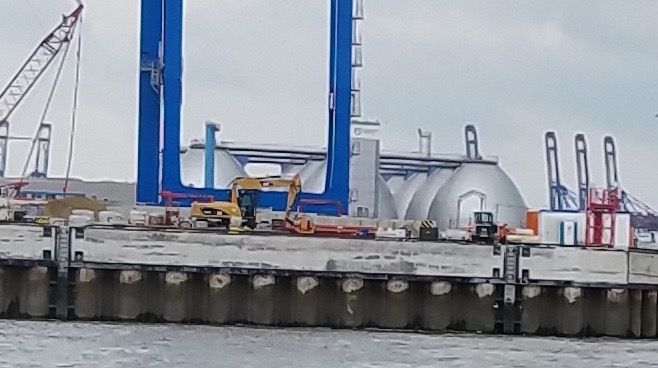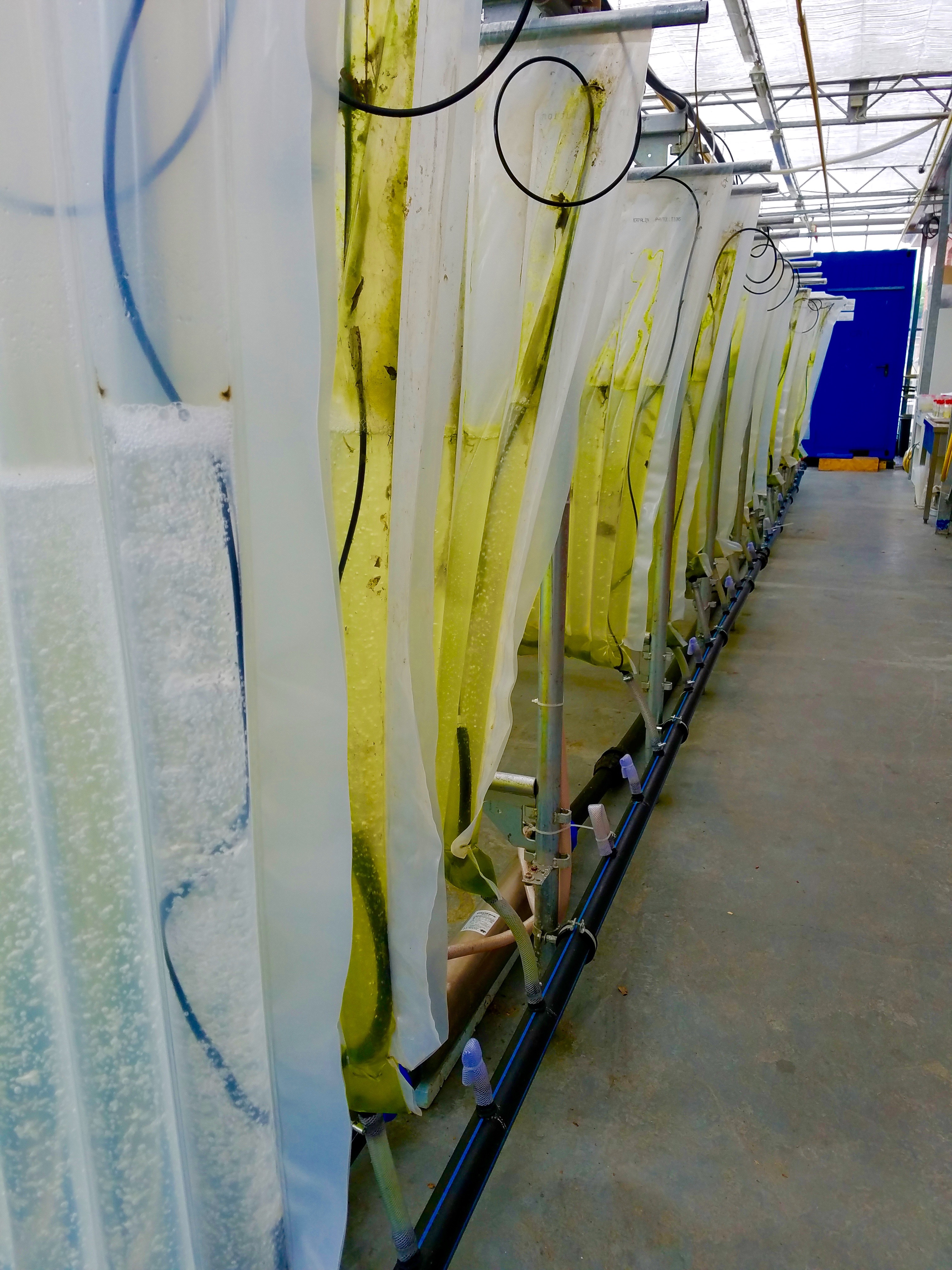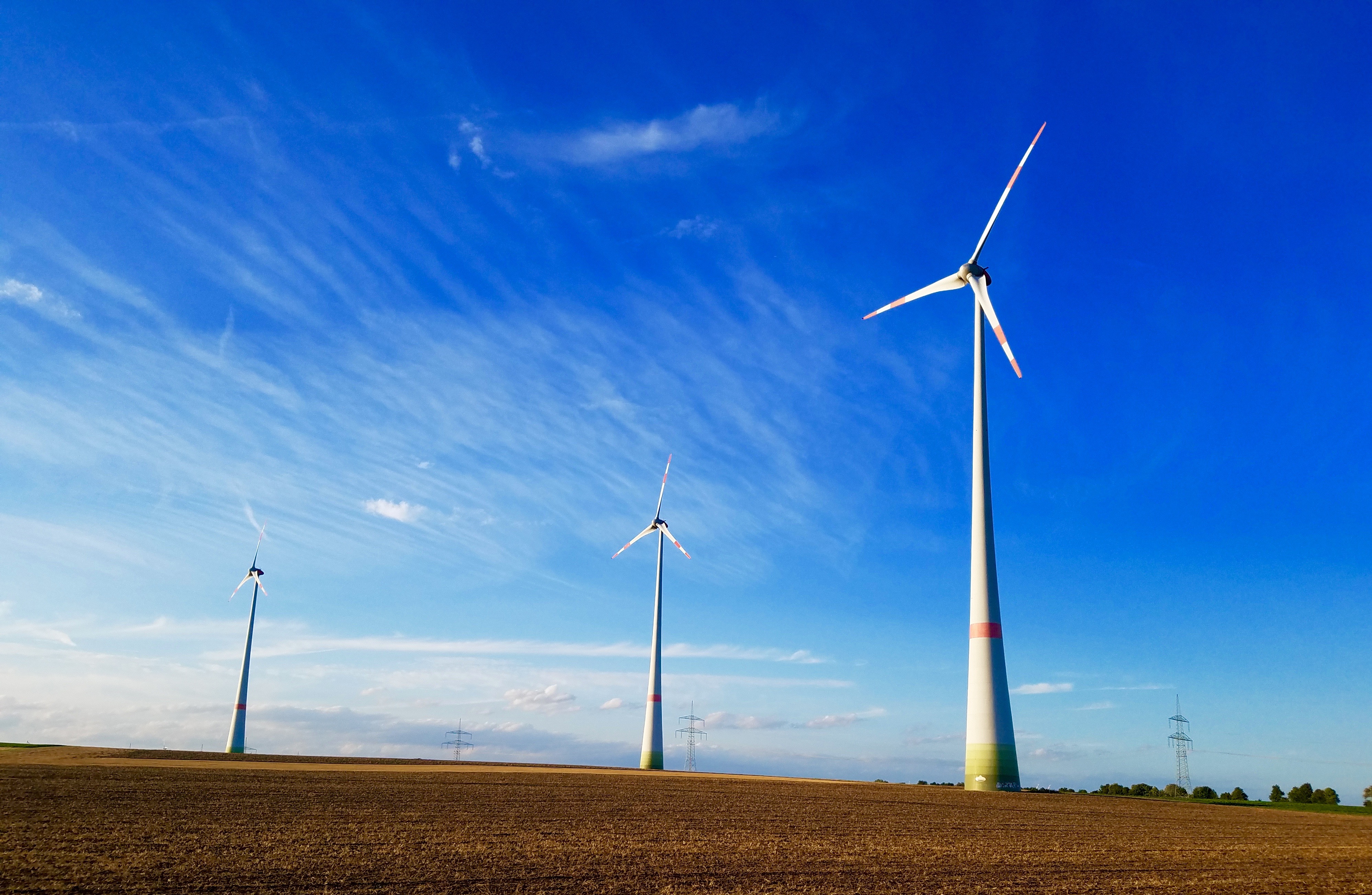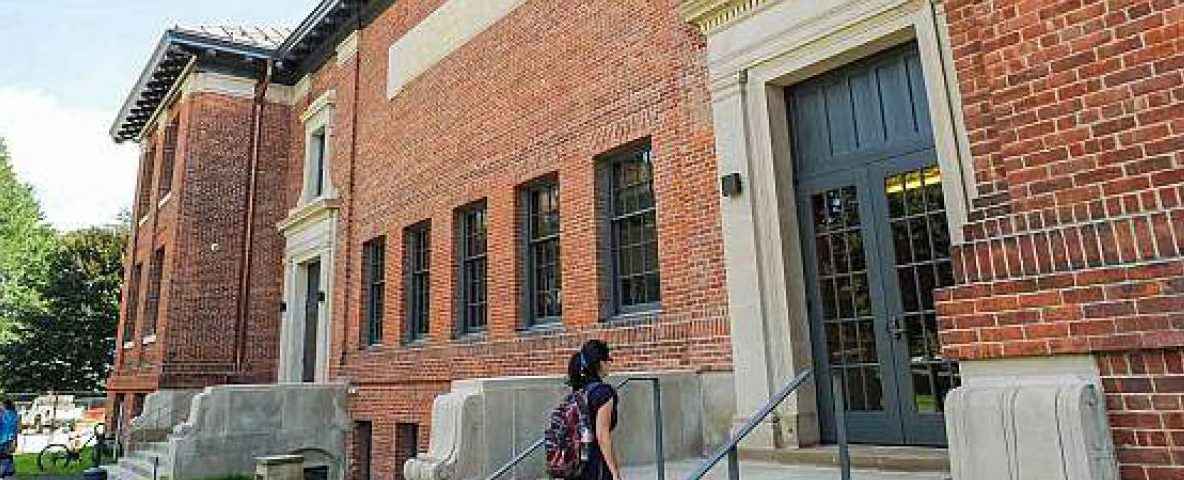Energy conservation and renewable energy has been an intensely discussed topic for decades. Germany has made a firm commitment to smarter energy consumption. Prof. Cunningham and Prof. Magnes are planning a course examining renewable energy strategies (ENST 254) during the spring of 2018. Prof. Cunningham and Prof. Magnes took a trip to Germany this summer to prepare for this environmental studies course by visiting Hamburg, Bremen, Bremerhaven, Frankfurt and Darmstadt.

150 Million kWh of energy per year.
The North of Germany is a prime example for renewable energy with the world’s largest complex of off-shore wind farms, as well as solar farms as well as energy production from wastewater and agricultural waste. The Faultürme in the Hamburg harbor use the heat and gases from wastewater to process wastewater and still produces an excess of about 35 Million kWh per year for the community.
A natural partner for this environmental studies course is Jacob’s University in Bremen, a private liberal arts college in Germany. Vassar College already has an exchange program with Jacob’s University that allows students to spend a Junior Year Abroad (JYA) at Jacob’s University in Bremen. Jacobs faculty have also taught courses on renewable energy with excursions to various sites in the area.

In addition, there are many valuable research projects in the sciences at Jacob’s University that contribute to important discussions such as renewable energy. In the Ocean Laboratory, Dr. Laurenz Thompson, students conduct research in an algae laboratory and inner space research. Jacobs also has a solar cell lab, where efficient circuits for solar cells. Prof. Magnes and Prof. Cunningham are very excited to introduce the undergraduate laboratory on constructing solar cells to Vassar College.
A harbor tour in Bremerhaven had many windfarms in its background, which were never mentioned since they have just become part of life in Germany. The European tourists seemed to be much more interested in the import and export of cars and the incredibly efficient train system.
In addition to the science, Prof. Cunningham and Prof. Magnes plan to use the course to explore policies that made the Energiewende (energy transition to renewable sources) in Germany possible. In that context, Prof. Geert Brunekreeft and his colleagues Christine Brandtstätt and Martin Palovic explained the separation of the companies that govern the energy grid and the energy providers. This policy makes sense in general but presents challenges when storing access power from renewable energy sources such as solar and wind in the grid.
Prof. Karen Smith Stegen and colleagues talked about the best way to encourage renewables as well as the pros and cons of different approaches, such as quotas versus feed-in tariffs. In quota systems, utilities have greater flexibility in selecting the most cost efficient renewables, but policy makers lose the ability to ensure diversity and security of supply. Feed-in tariffs allow policy makers more control and can also provide incentives to smaller suppliers, such as farms and households, to contribute, but they may lead to market distortions. The question is also how to use incentives and which incentives are key elements of any energy transition and an area of contention between various stakeholders. [1] Prof. Karen Smith Stegen is looking forward to discussing different kinds of incentives and the socio-political and economic implications of energy change.
This issue was confirmed by the Energiereferat (the energy office for the city of Frankfurt). Frankfurt is a city that has been incredibly successful in reducing its energy consumption with a target to completely switch to renewable energy sources. The six-story city building in which Prof. Cunningham and Prof. Magnes met with Mr. Florian Unger, is a Passive House standard building, which consumes less than a 10% as much energy as a conventional building. Nearby in Darmstadt, Dr. Berthold Kaufmann, of the Passive House Institute, explained that the many advantages of a Passive House including energy savings, cost savings, and a healthier living environment.

This was incredibly fruitful trip, with the highlight of an incredibly comfortable, affordable and efficient public transportation system, which includes trains, bike rentals, shared rides etc. The environmental studies course on the Energiewende, in Germany will surely be educational and enjoyable.
[1] Karen Smith Stegen, Matthias Seel, The winds of change: How wind firms assess Germany’s energy transition, Energy Policy, Volume 61, 2013, Pages 1481-1489, ISSN 0301-4215, http://dx.doi.org/10.1016/j.enpol.2013.06.130.
